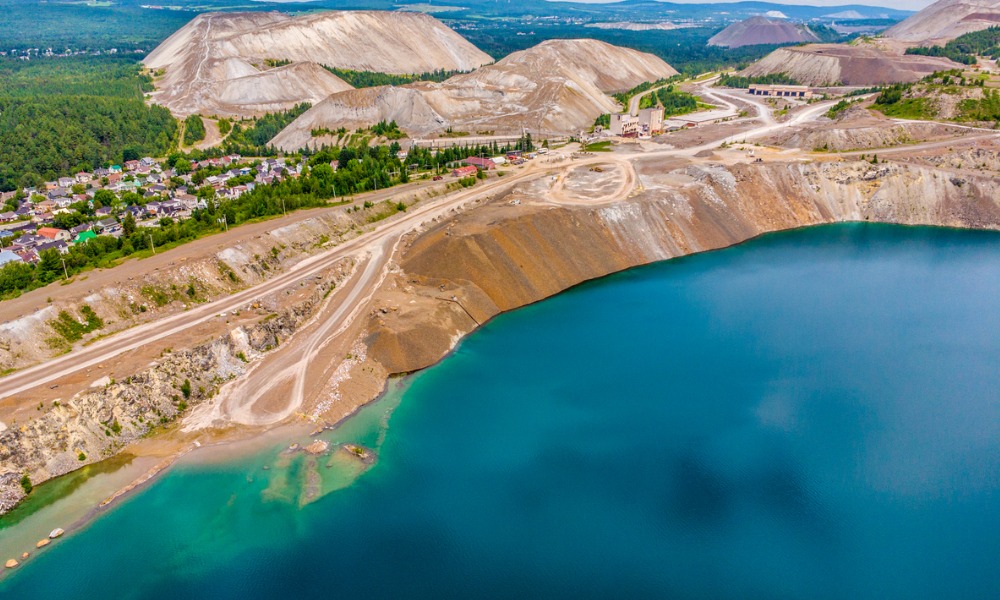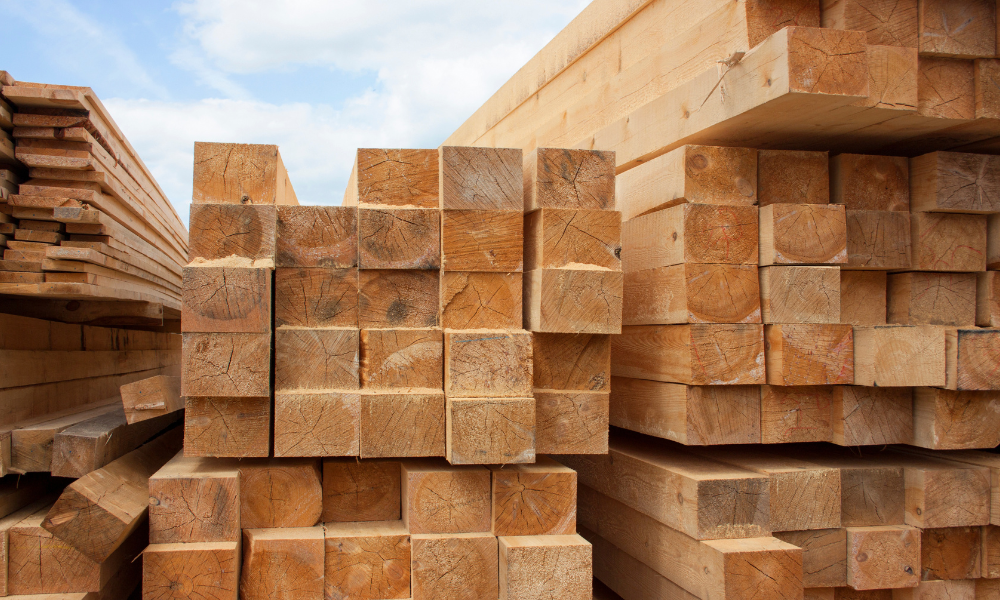The Canadian mining industry is already a thriving sector of the country. It attracts many investors and companies to explore this booming business.
While it’s interesting to highlight the rewards when mining in Canada, it’s important to know its legal side. This is to ensure that the operations comply with the law, and nothing is violated.
What laws regulate the Canadian mining industry?
There are many laws that regulate the mining industry in Canada, both at the federal level, and the provincial or territorial level. This is in addition to the important and recent common law principles that apply to the mining sector.
Each government also has its own jurisdictions on which area of Canada’s mining industry it is regulating.
As Timothy McCormick, a partner at Borden Ladner Gervais LLP (BLG) says, "the legal framework of the Canadian mining industry involves federal, provincial, and Indigenous laws. There are federal and provincial property laws with respect to mining rights as well environmental laws.”
Federal laws on the Canadian mining industry
According to McCormick, important laws at the federal level include those on environmental sustainability. These have an impact on every aspect of the mining operation.
Some important federal laws not directly about mining but still affect the mining industry include:
- Competition Act
- Export and Import Permits Act
- Impact Assessment Act (IAA)
- Investment Canada Act (ICA)
- Canadian Environmental Protection Act
Other federal laws cover specific minerals, such as the Export and Import of Rough Diamonds Act.
One of the legal considerations from mining is the Yukon's Quartz Mining Act. Learn more about other laws that regulate the mining industry and companies in the territory.
Provincial mining laws
“Each province governs the exploration, development, and extraction of mineral resources,” McCormick says. “These laws set out the requirements for obtaining and maintaining mining rights, exploration permits, and mining leases.”
In addition, each province and territory has enacted its own mines and minerals acts, or other similarly named statute. These laws’ primary goal is to regulate mining operations and the companies engaged in mining in the province or territory.
Indigenous laws affecting the Canadian mining industry
Indigenous laws and working with Indigenous communities are key to a project’s success.
“Indigenous laws and rights play an increasingly critical role in the Canadian mining industry. Mining companies must engage in meaningful consultation and, in some cases, obtain consent from Indigenous communities whose traditional territories may be impacted by mining activities,” McCormick explains.
Mining companies must be aware of Canada’s Indigenous laws, not only at the federal level, but down to the locality where they operate.
What are the steps in joining the Canadian mining industry?
When joining the Canadian mining industry, new mining companies must take note of the following:
- Licences and permits
- Land access and mineral rights
- Mining claims and lease registration
- Environmental assessments
- Regulations on financing and investments
After setting up operations, mining companies must also consider other regulatory compliance to continue running their business, such as:
- taxation and royalties specific to the mining industry in Canada
- labour and employment for its mine workers
- reporting and disclosure requirements for continued operations
- closure and reclamation obligations during post operations
Following these regulatory requirements as set by law, and as implemented by different regulatory bodies, it’s important to consult a Canadian mining lawyer.
This video shows an overview of the Canadian mining industry:
If you’re looking for a mining lawyer in Ottawa, Toronto, or nearby areas, here’s a list of Lexpert-ranked mining lawyers in Ontario.
Let’s now go over the steps in joining the Canadian mining industry. Here’s what is required:
1. Licences and permits
Acquiring licences and permits is under the jurisdiction of the provinces, territories, and even the municipalities.
First, one must obtain a prospector’s licence to survey the area, according to the provincial or territorial law.
Next, mineral rights must be obtained through a mineral claim or licence to conduct exploration.
Finally, to do mining activities related to production and extraction of minerals, a company’s mineral claim must be replaced by a mining lease.
Obtaining these licences and permits is subject to a long process, so getting help from a mining lawyer would be beneficial.
In addition, processes may differ for every resource being mined or produced. For example, the above-mentioned process applies to mineral rights. A different process applies to oil and gas – applicants must undergo a bidding process in the province or territory where it is located.
Foreign ownership
Rules may vary in every province or territory when it comes to foreign corporations that want to obtain these licences and permits. These foreign corporations must also be wary of certain conditions and limitations, as found in Canada’s competition and anti-trust laws.
2. Land access and mineral rights
Related to obtaining licences and permits is the requirement to have land access to where the resources are found.
For example, if the land is privately owned, a mining company must have an agreement with the surface owner for their surface rights to fully exploit its mineral claim. Otherwise, the mining company, who is a holder of a mineral claim, will have to get an order from the provincial or territorial land authority or adjudicator.
Lease agreements with Indigenous groups
This also applies to cases where the land and its rights are owned by Indigenous groups or subject to Aboriginal rights.
The process is also related to the requirement in certain jurisdictions to consult Indigenous groups as to mining activities in their area. Here, mining companies will have to negotiate with them, and sign lease agreements or other licences. This includes surface leases and mineral production leases.
3. Mining claims and lease registration
Provincial or territorial laws on mining also require that mining claims and leases be registered with the provincial or territorial regulatory body. This is in addition to registering with other federal bodies.
For instance, in Alberta, its Department of Energy and Minerals issues and administers agreements on the exploration and production of mineral resources in the province.
4. Environmental assessments
Environmental assessments are part of the legal framework governing the mining industry in Canada.
Aside from the IAA, there are also provincial or territorial laws on environmental impact assessments that will apply.
In most cases, a complete environmental assessment is attached to the application when applying for a licence to do mining exploration. These assessments, in relation to getting the necessary permit and licence, will also vary for different types of land or its ownership.
For example, zoning laws must be followed, as set out by the province or territory. Agricultural or environmental reserves will also require additional processes.
5. Regulations on financing and investments
Some of the federal requirements that mining companies must take note of are the review provisions of the ICA and the Competition Act when it comes to foreign investments.
Under both laws, when certain thresholds are reached, the proposed transaction (or completed ones, in some cases) on the foreign investments will be reviewed by:
- Minister of Innovation, Science and Industry for the ICA
- Competition Bureau, for the Competition Act
This also applies to transactions where the control and ownership of a domestic corporation is being bought by a non-Canadian entity.
Key points when joining the Canadian mining industry
Becoming part of the Canadian mining industry involves knowing the practical and legal aspects of mining. And by legal aspects, we refer to federal law and provincial/territorial laws on mining, Indigenous law, and non-mining federal laws such as the Competition Act.
For companies wanting to do well in this area, it's important to follow these rules closely. Consult a mining lawyer to help you meet the requirements for joining the Canadian mining industry. A lawyer can help you find the right balance between succeeding in your mining operations and complying with the law.
Learn more about the Canadian mining industry by consulting the best mining lawyers in Canada as ranked by Lexpert.





